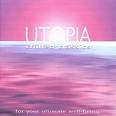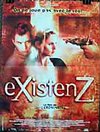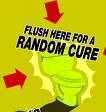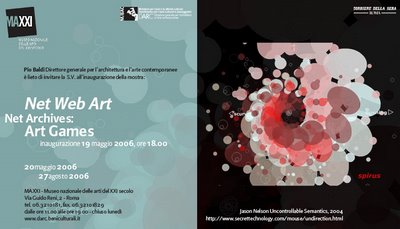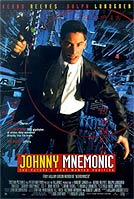It is there, sitting on the desk, when looking at it you can see a blank and dormant piece of technology with a mouse, keyboard, hard drive and blank monitor staring back at you. However, it is blank and dormant only until push the button to activate our computers and wake this technology, does the magic of the Internet appear with the double click of a mouse. When entering into the world of the Internet you can connect to anybody and anything you could possibly imagine. Although it is naive to think that the people and places are somehow physically behind the computer monitor, people nonetheless engage the computer screen as a gateway to another place (Jordan: 1999). When the computer based technology opens up, we can, for example, communicate with other people via email, chat to them in chat rooms (for example MSN), apply our thoughts and opinions on our very own web page, access information and research materials, or participate in online video conferencing.
With the introduction of the Internet and its numerous uses, it seems only natural that education on all levels, takes its place along with the rest of the world, and uses the technology for its obvious benefits. Therefore in this essay, I will be exploring the Internet and its impact on education. Firstly, I will briefly discuss the history of the Internet and furthermore explore the positive and negative impacts of the Internet on education. The levels of education I will discuss range from primary school up till university level.
In the early 70s, Bob Taylor, a psycho acoustician, was the director of the computer research program at the American Defense Advanced Research Projects Agency (ADARPA). He and others, with the help of Leonard Kleinrock, together at the agency began various kinds of research and investigations into ways of connecting computers to other computer networks as a means of developing a transparent communication method (http://www.isoc.org/internet/history/cerf.shtml). The project’s results became known as the “Internet”, and thus the beginnings of the Internet were born. Over its 25 to 30 year or so history, the Internet is constantly functioning as a collaboration among cooperating parties and has made rapid advances from its beginnings, thanks to people like Vint Cerf, Jon Postel, Steve Crocker, and Bill Naylor whom were graduates and worked at UCLA. These men worked together to connect the first Interface Messenger Processor (http://www.wired.com/wired/archive/2.12/creators.html) If it was not for these men like them, the Internet and its capabilities would not exist.
The Internet is owned by not one person in particular; rather it is made up of all the computer networks in the world working together as one, outputting various forms of information. There are many obvious advantages of using the Internet: the fashionable side and the fun of using it, its fast to access and it offers a vast choice of sites to visit which supply information on whichever topic you choose and there are many services providers to choose from as well. It is accessible 24 hours, seven days a week and the cost is relatively cheap for most. According to Elizabeth Hallam Smith, from the National Archives, the addictive medium and its percentage growth of users are expected to grow over the next 5 years as a result of the convergence of the Internet onto mobile phone technology and digital TV (http://www.archivists.org.au/sem/conf2000/hallamsmith.pdf ). With all this Internet technology ability floating around the place, education is surely to be impacted upon by this medium.
The Internet contributes to education as it is such a broad base of knowledge that one can use everyday. Everybody can benefit from the Internet in particular teachers, students and those whom work in the realm of education (Kahin: 1995). With people like, academics and scholars, who contribute and share their knowledge on the Internet in the forms of essays and so forth, can be seen as a positive move for education.
In society today, it appears on the surface that there are no negative impacts on education caused by the Internet phenomenon, however I find this to be untrue and for arguments sake, in this essay, I will be outlining many of the positives impacts and many of the unseen negative impacts that the Internet is having on education.
Firstly, one of the advantages, that was outlined in the beginning of this essay, was the ability for the academics and scholars contributing their knowledge and work on the Internet. With this, it contributes to education significantly as it gives students and teachers the ability to access information from all over the world for their assessments and research. Imagine having this one big world library with endless shelves of books, information and help to research, at the click of a mouse. The impact on education is amazing because, for example, a primary school student is doing homework or researching at school and needed some information, “click” and it’s there on screen in front of them. Having access to the Internet at schools and home can also be seen as a positive encouragement for students to learn especially at schooling age ( http://www.wired.com/news/school/0,1383,54791,00.html )
Educational software products are also available for children to use at primary school, secondary school and higher education, as they provide a great interaction and encouragement for learning. Internet programs such as, Maths Power, teaches primary school up till high school students math via the Internet and the software program (http://www.mathspower.com.au/). Internet programs such as; 3D Scientific, Advanced Computer Tutoring Project and Advanced Education Resources, can help any higher education student and teacher in their field of study (http://www.csu.edu.au/education/software.html )The ability to access these kinds of Internet software programs for children and adults is drifting away from the traditional education method of textbooks learning, written homework and library visits, however, it is seen as a convenience to humans, an encouragement for the students to learn, the way of the future and definitely a positive impact on education.
Other positive impacts of the Internet and education include the ability for students not to physically attend lectures and tutorials at university levels, instead accessing their classes virtually on the Internet. There are lecturers, for example at Griffith University, that prepare daily lecture notes and tutorial exercises available through the university website for their students. In some cases there are subjects like, Communication and Digital Technologies at Griffith University, that are a completely paperless subject and do not use the ‘dead-tree’ education method of teaching (Quote by Adam Muir in lecture)( http://www.griffith.edu.au/) Conducting these types of educational subjects through the use of the Internet is quite different to the old style method of education whereby, a student, has to be present at lectures and tutorials in order to receive a university degree. This also gives the ability for disadvantage people living in rural areas of their country to gain a university degree without the need to travel abroad. (http://www.ed.gov/Technology/Futures/hardin.html ).
The Internet has impacted on education in many positives ways and has made education methods advance dramatically since the Internet’s forth comings. The positive impacts stated included; access to information for students and teachers, the Internet being an encouragement for students to learn and research as it is the latest in technology, students not having to physically be at university to obtain a university degree and the ability for disadvantaged students whom live far away to attend a university. All these are given the chance through the power of the Internet. The positive impacts of the Internet on education discussed in this essay are only a few benefits amongst many that can be discussed. However, it must be noted that with these positive impacts the negative impacts behind it are lurking near.
The negative impacts of having such technology that allows one to access information at the click of a mouse can be seen as follows. It is agreed upon that the Internet is such a large space and has the ability to access all kinds of information is enormous. However, take for example, a primary school student doing research for homework, the student is able to access the Internet, which means accessing all materials posted on the Internet. Materials on the Internet are not always reliable, as the medium is open to publishing and can be misleading (http://www.hjournal.org/files/SWAP_OpenAccessSemanticW.pdf). This misleading information can affect any student or teacher, whom might be accessing information for research. Just because it is published on the Internet does not make it accurate. The fact that they can access information that is incorrect can be seen to hinder traditional education methods. Along with access to incorrect information, children, whilst on the Internet can have access to chat rooms, music sites and popular goods sites, such as Ebay.com, which can be seen as a distraction and a deterrent from the normal traditional way of classrooms and textbook learning with a teacher present.
Children can also be exposed to inappropriate content such as pornography and violent materials due to the Internet being an unregulated global medium (http://www.microsoft.com/billgates/shapingtheinternet.aspx ) These negative impacts can be seen to hinder education as the Internet is unable to be censored and regulated like the traditional form of education in classrooms.
Another negative impact on education caused via the Internet is the dependency on the Internet. The growth of the technology has spurred on the need to use the Internet for even simple humane things like going shopping for example. The ability to go and physically shop and purchase your goods is being taken over by the fact that you can now order just about anything online. Just like when the Internet was introduced into education, the need to go to the library at school for information to complete essays and assignments on time has been taken over by availability of information on the Internet. This ready available materials online is slowly becoming the norm for students and their studies.
The Internet has created this dependence for students not only in their studies, but in normal life. This alarming fact can be backed up by Dr Geoff Potter, who is an Education professor at the University of Victoria, Australia. Potter states that “the regular use of the Internet to gather information for school can harm children’s learning process” (http://communications.uvic.ca/releases/tip.php?date=16092002 ) He furthermore states that, “because online information is so accessible it’s easy to depend solely on the net for research, which is problematic”. The Internet has become the norm in our society for everyday things and it is becoming the norm for the way of education methods. If this is to be the case, then what should happen one day in the future if the Internet breaks down or is destroyed completely? What kind of impact will that have on the children and adults that have used the Internet as their sole bases of research and daily living? They would simply not be able to cope and their idea of the Internet being a utopian gateway will be destroyed. Thus, another negative impact the Internet is having on education culture.
The traditional method of education is to attend classes at schools or universities and so forth. You attend classes with fellow peers and have a teacher to teach your subjects and give information to you directly in person. With the introduction of the Internet to education culture, it seems this ‘traditional’ way of leaning is going to be non-existent in the years ahead. This impact on education can be seen as negative because according to people like, Jessie Dingle and Wendy Gooch at the University of North Carolina, America, learning through the Internet “ is not as effective as face-to-face interaction in a classroom” (http://horizon.unc.edu/projects/issues/papers/Dingle.html) Face to Face education, according to Brown and Duguid in Twigg’s essay, stated that “the proponents of Internet technology suffer from "tunnel vision" that prevents them from seeing than learning is a social experience for which distance-education technology is a poor substitute” (http://www.acm.org/ubiquity/views/c_twigg_1.html). Without the interaction of other peers and a teacher, the development of the student is seen to be hindered. The individual student might not be an independent in a situation where classes are done through the use of the Internet and will also created difficulty in the learning process.
There are many negatives about the Internet and its impacts on education, such as the ones that were stated in this essay previously that many people in society do not see. It is necessary to point these out for people to be informed and keep a reminder for them that the Internet and its impacts on education are not always positive. Therefore, to conclude this essay, it goes without saying that the Internet is a wonderful piece of technology that many people in our world are able to access for education purposes but let us not forget that all that seems wonderful on the outside has negatives on the inside.
“Internet History”
Internet Society Website
http://www.isoc.org/internet/history/cerf.shtml
“Twenty-five years ago, they brought the Internet to life”
Katie Hafner
http://www.wired.com/wired/archive/2.12/creators.html
“Lost in Cyberspace: Have Archives a Future?”
Elizabeth Hallam Smith
Public Record Office
The National Archives, UK
19 August 2000
http://www.archivists.org.au/sem/conf2000/hallamsmith.pdf
“Bridging the Tech-Education Gap”
Katie Dean
2002
http://www.wired.com/news/school/0,1383,54791,00.html
Maths Power Website
http://www.mathspower.com.au/
“Education – by Resources – Software”
Charles Stuart University
2006
http://www.csu.edu.au/education/software.html
Griffith University
http://www.griffith.edu.au/
“Digital Technology and its impact on Education”
Joseph Hardin
http://www.ed.gov/Technology/Futures/hardin.html
“Open Access and Semantic Web - SW Applications for Open publishing”
Michele Barbera
Francesca Di Donato
http://www.hjournal.org/files/SWAP_OpenAccessSemanticW.pdf
“Shaping the Internet Age”
Bill Gates
Internet Policy Institute
Chairman and Chief Software Architect, Microsoft Corp
2000
http://www.microsoft.com/billgates/shapingtheinternet.aspx
“Internet Makes Research Easy, But Learning May Suffer”
Dr. Geoff Potter
University of Victoria
2002
http://communications.uvic.ca/releases/tip.php?date=16092002
“Issues Challenging Education - Today's Fad or Tomorrow's Future?
http://horizon.unc.edu/projects/issues/papers/Dingle.html
“Distance Education: An Oxymoron?”
Carol Twigg
Executive director of the Center for Academic Transformation
http://www.acm.org/ubiquity/views/c_twigg_1.html
Book References….
Kahin, Brian and James Keller. Public Access to the Internet. Cambridge: MIT, 1995
Jordan, Tim, Cyberpower: the culture and politics of cyberspace and the Internet, Routledge: 1999, Page 2
Other References….
Quote by Adam Muir in lecture regarding “Dead-Tree Method of education learning”











